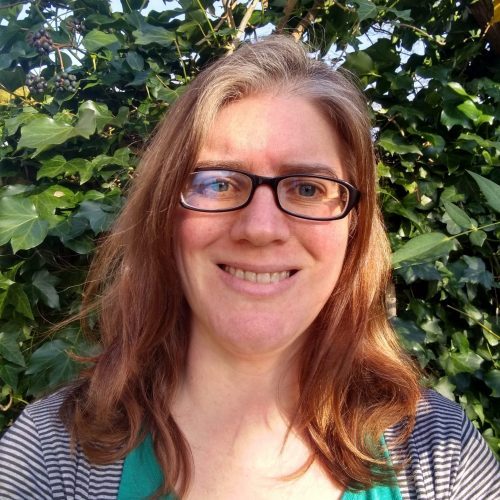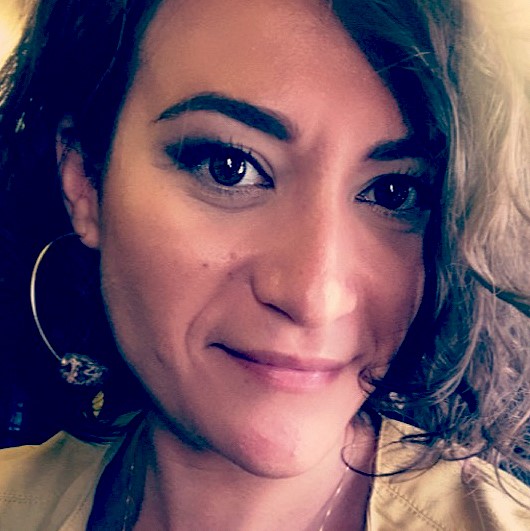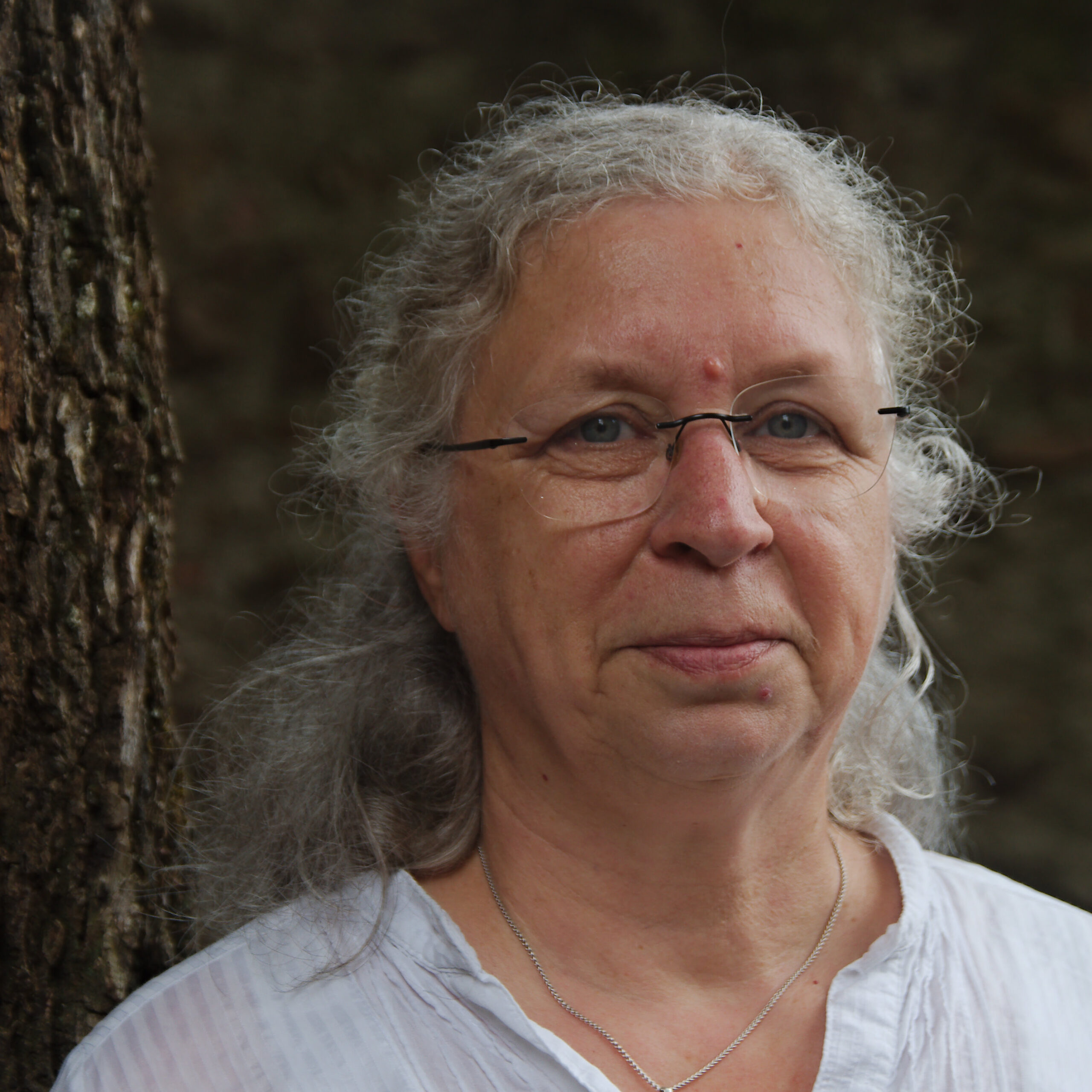Interpret Europe’s managing coordinators are responsible for areas of activity that are directly linked to the management of the organisation. At present there are five managing coordinators leading their own teams:
- News Coordinator: Marie Banks (UK)
- Training Coordinator shared role: Iva Caleta Plesa (Croatia)
- Training Coordinator shared role: Michal Medek (Czech Republic)
- Research Coordinator: Carmen Granito (Italy)
- Event Coordinator: Bettina Lehnes (Germany)

Marie Banks (UK)
News Coordinator
The News Team works with Interpret Europe members to produce the quarterly newsletter and other communications, including offering proofreading for non-native English speakers. I also liaise with the Social Media Coordinator and support the Management.
My career in interpretation started accidentally, but what a happy accident! After university studies and then spending six months on a rainforest conservation project in Vietnam, I found a new biodiversity visitor attraction was being built in Bristol, UK. It was due to open in 2000 and sounded like the most exciting place.
I helped with the final stages of research and installation, which led on to other things and I gained experience in all areas of the visitor centre business, including front of house as a guide, training as a zoo keeper and horticulturalist looking after thousands of animals and plants, working with the learning team to deliver engaging activities for schools and families, and fundraising to secure a £2 million grant for exhibition developments. I led the team to develop the interpretation plan and implementation of it which gave me more of an insight into the world of interpretation and how powerful it can be to engage people and became the Exhibition Manager.
I then moved on to become a consultant for the Wildfowl & Wetlands Trust (WWT). WWT is a charity which manages ten reserves with visitor centres around the UK and my job was to apply my operational and interpretation experience to help others all over the world to develop visitor centres and interpretive programmes to engage people with the natural world whilst minimising disturbance to wildlife. I got to travel the world and help to deliver some great heritage interpretation projects.
I now run my own company, called Zebraproof, and offer proofreading and copyediting in addition to interpretation planning, exhibit design and installation for zoos, museums, visitor centres, national parks and heritage sites. Having previously volunteered to assist with proofreading for IE conference material and newsletter articles, I was pleased to accept the official role of News Coordinator in 2016 and really enjoy hearing from you all and helping to keep you all up to date with IE news.

Iva Caleta Plesa (Croatia)
Training Coordinator shared role
The IE training programme represents constant teamwork in progress. It evolves, based on the needs of members and HI professionals, the experience of trainers and course participants and also on the state-of-the-art knowledge in the relevant fields. Many trainers wish to partner with Interpret Europe because it is mutually beneficial on many levels.
I discovered heritage interpretation through tourism and felt immediately in love with it. Love for people, interest in different cultures, curiosity and wondering about life led me to study foreign languages. Wanting to know more about the European project, I did European studies. I enjoyed working as a tourist guide in Dubrovnik region, touring Croatia and making theme tours of Zagreb as a local guide. I also enjoyed working as a French language teacher believing that education is a key instrument for changing the world. Teaching and learning from others, sharing knowledge and experiences make me who I am. I believe that heritage interpretation can be the way to create a better society, more tolerant, more inclusive and more comprehensive. I live in Zagreb in a family house with my husband and two daughters where we love to meet, greet and host people in small creative studio called Doremiza. I am very proud of my last academic achievement: getting a diploma from the University of Zagreb in Museology and Heritage management.
I am an active member of Interpret Europe and currently act as a vice president of the Croatian Association for Heritage Interpretation – Interpret Croatia. I have participated in interesting projects and initiatives in both associations.
Heritage is about people, patience, listening to each other, working together and finding solutions. This is what I will try to do as training coordinator, together with my colleague Michal. I love to train, truly enjoying it, and I am looking forward to working with Interpret Europe trainers.

Michal Medek (Czech Republic)
Training Coordinator shared role
The IE training programme represents constant teamwork in progress. It evolves, based on the needs of members and HI professionals, the experience of trainers and course participants and also on the state-of-the-art knowledge in the relevant fields. Many trainers wish to partner with Interpret Europe because it is mutually beneficial on many levels.
The IE training programme is constant teamwork in progress that evolves based on the needs of members/ HI professionals, experience of trainers and course participants and also state-of-the-art knowledge in the relevant fields. Trainers wish to partner with Interpret Europe, because it is mutually beneficial on many levels.
The above is my vision for the Interpret Europe training programme. I came to heritage interpretation from the field of environmental education, which I was practicing both at formal level (excursions to nature for schools, residential programmes) and non-formal (leading a youth club). I founded and led two environmental education centres, each for eight years, developed scores of programmes and helped to formulate policies for the field both in the Czech Republic and for the World Organization of the Scout Movement. I still teach environmental education at two faculties of Masaryk University and do training for advanced lecturers of environmental education on programme development. I hold an MSc. in geography, biology and geology with qualification of a secondary school teacher, an MA in environmental humanities, and a Postgraduate Certificate in Interpretation: Management and Practice (UHI, UK).
My serious involvement in the HI field started in 2009 when I was invited to the board overseeing a project of building visitor centres in protected areas in the Czech Republic. This led me to distant learning of interpretation at the UK’s University of Highlands and Islands. Along with other colleagues pioneering the field we started the Czech Association for Heritage Interpretation in 2011. Five years later the association founded the Czech Institute for Heritage Interpretation in order to take over the business part of its operation: training, interpretive planning, exhibitions development, etc. From its beginning I have served as a director of the Institute. Since 2014 I have been teaching a university course on heritage interpretation. I have also contributed to several books on HI.
I have been a member of Interpret Europe since 2014 and am a certified trainer for IE’s CIG, CIW and CIP courses. I helped to organise one of the first CIGs and a mini-conference in Prague (2017).
I love the Moravian karst – a small area I am exploring to its depths, and the Carpathians – a large area I am exploring to its width.

Carmen Granito (Italy)
Research Coordinator
The Research Team supports Interpret Europe with research findings. We liaise with universities and involve researchers to answer the most critical questions in heritage interpretation.
If stones could talk, they would tell amazing stories. As a journalist covering Southern Italian heritage, I have always used storytelling to raise awareness around local and neglected sites. However, it was only during my MA in Heritage Management (at the University of Kent and Athens Business School) that I fully realised that at the core of heritage management are the values and stories behind the stones.
Since then, heritage interpretation has become a signature of everything I do. As Head of R&D for the London-based consultancy The Seeking State, I placed narratives at the heart of brand strategies for cultural organisations. As a heritage consultant, I have run projects on heritage interpretation, exhibition design and community engagement in places such as Beamish Museum (UK), Napoli Royal Palace (Italy), WHS Napoli city centre and Gran Paradiso National Park (Italy). My latest adventure is The Story Behind – Heritage Brands & Content, a consultancy that helps heritage peripheries interpret meanings, design relevance and inspire change for people, communities and society.
My heritage work is shaped by my academic research. A backpack filled with philosophy, semiotics and cognitive science, I explore human-centred and value-based communication techniques to give voice to the untold stories of heritage. Along the way, I completed an ESRC-funded PhD in Anthropology of Art at Durham University, investigating how different cultures tell their stories through pictures. My new horizon is to push the boundaries of heritage branding and interpretation through cognitive and social research – to engage the many, not the few.
I am an IE Certified Interpretive Guide and Writer, and as IE Research Coordinator, my goal is to help strengthen heritage interpretation practice and practitioners with research support and projects.

Bettina Lehnes (Germany)
Events Coordinator
The Events Team contributes to the creation of meaningful events that promote Interpret Europe’s principles and inspire others to adopt our approach to heritage interpretation. In collaboration with members and partners, we organize IE’s principal annual event.
Working with children of all ages for most of my life, I came across interpretation at a visitor centre during a family holiday in Wales. This was different from everything we knew at the time and it started to shape a new life for us.
It was my husband, Patrick, who started his business as an interpreter first. My own interpretation ‘career’ started as his non-expert proofreader and consultant in children’s affairs. I joined the business full-time in 2009. It was the same year that we started to work on the foundation of Interpret Europe.
The task that I enjoyed most during my time as Interpret Europe’s Assistant Director, was organising the annual conferences in different countries. Now I am happy to take on the task again as conference coordinator. Together with the conference team, I will do my best to create new inspiring and unforgettable conference experiences for you. Let’s see where we meet next…
